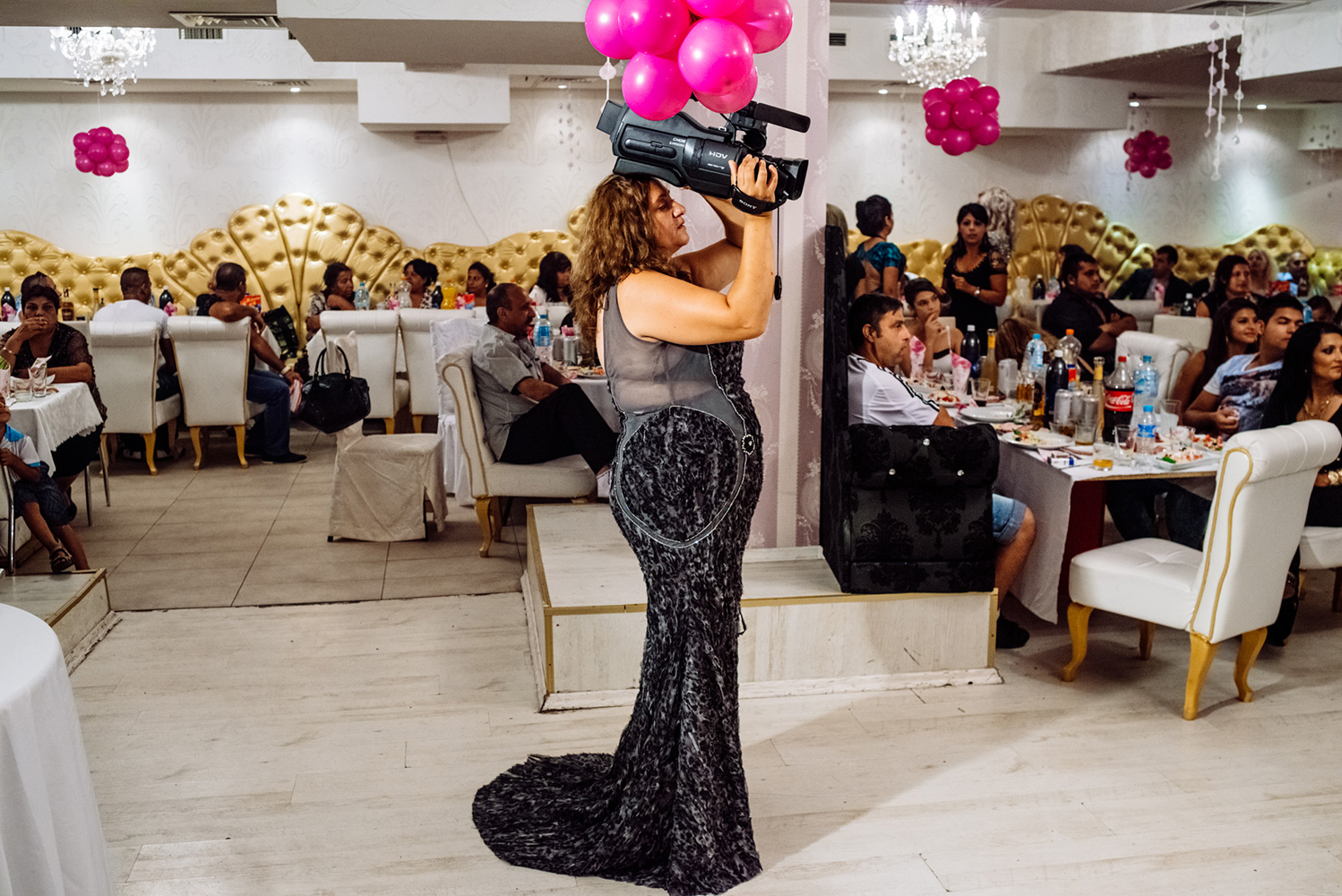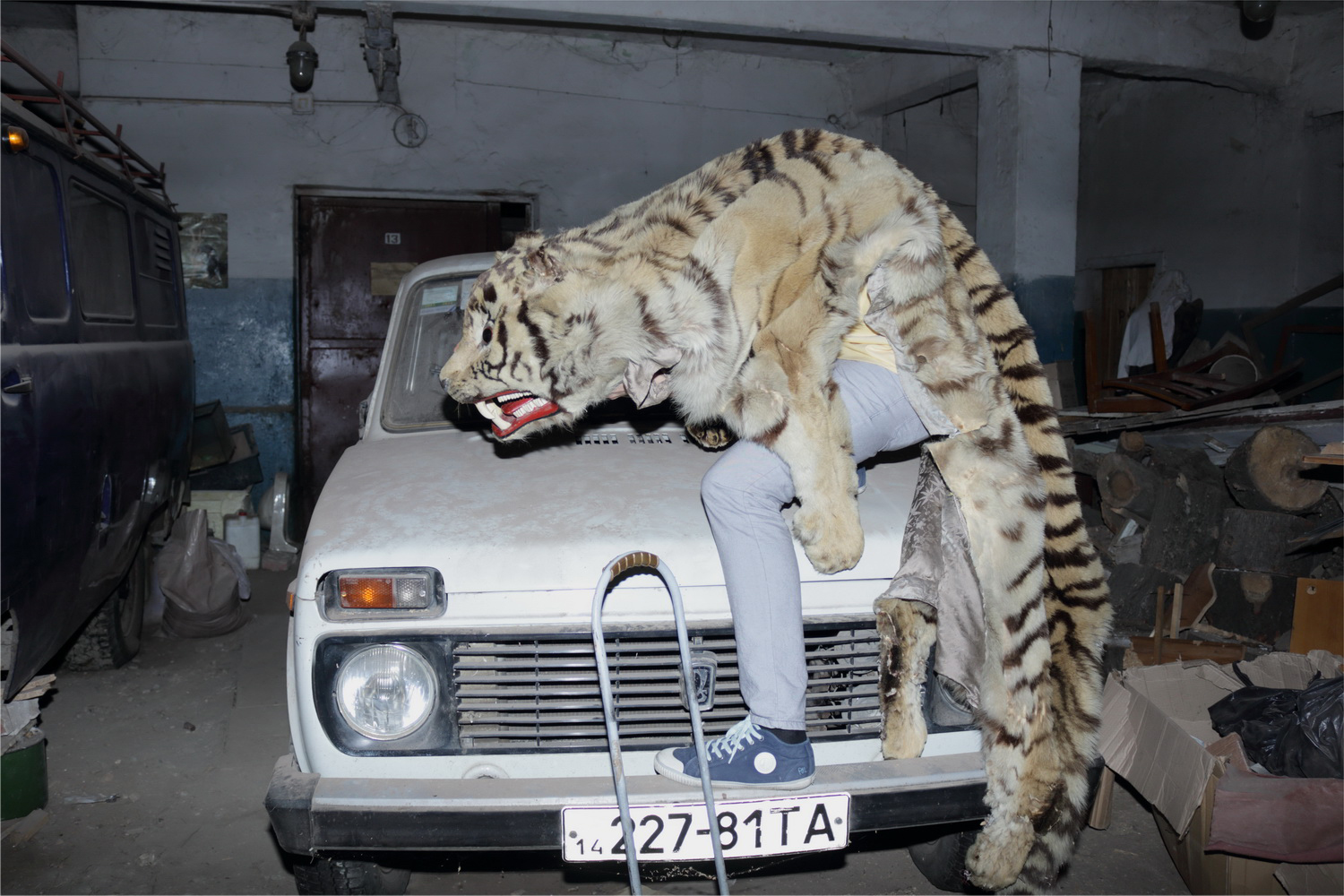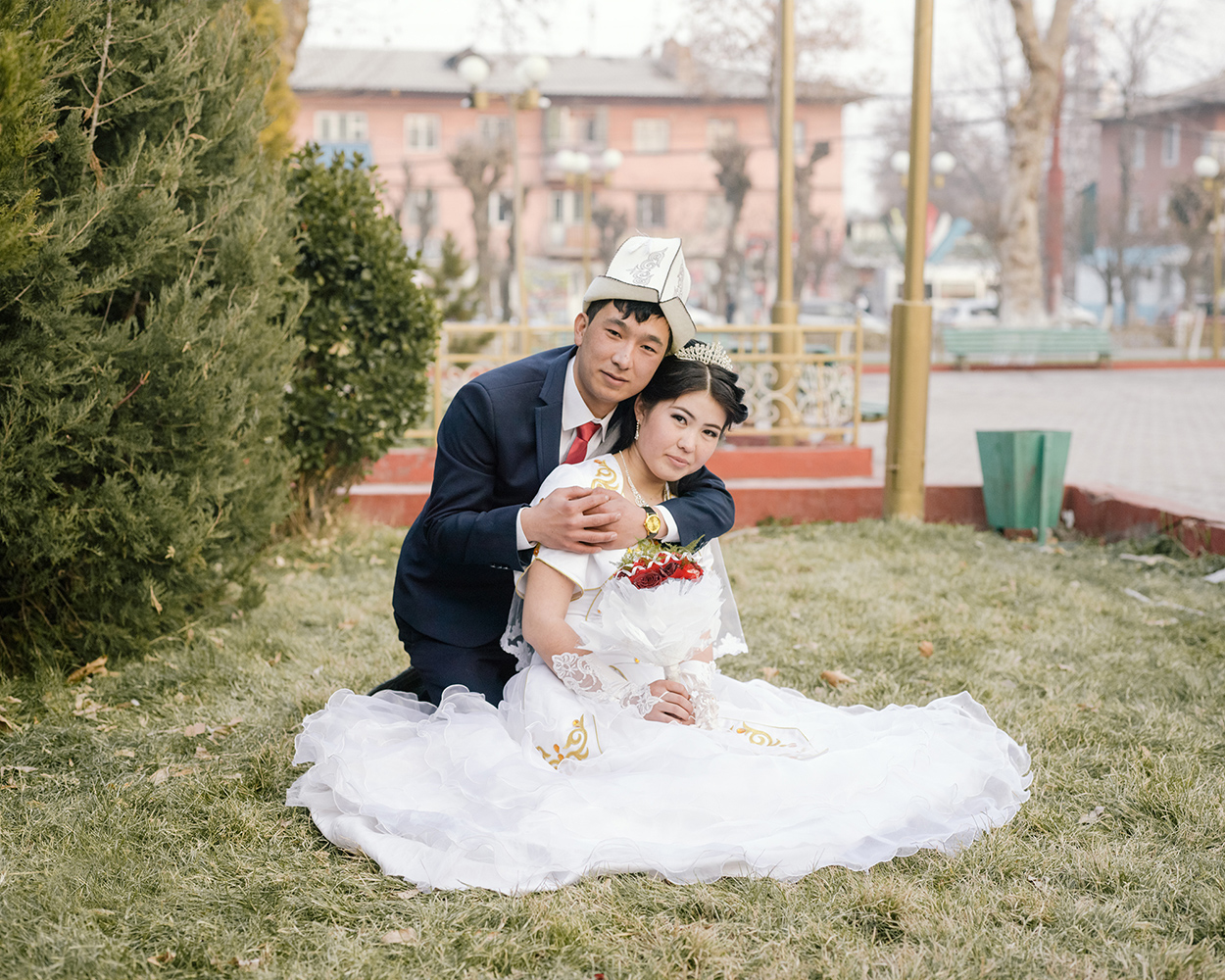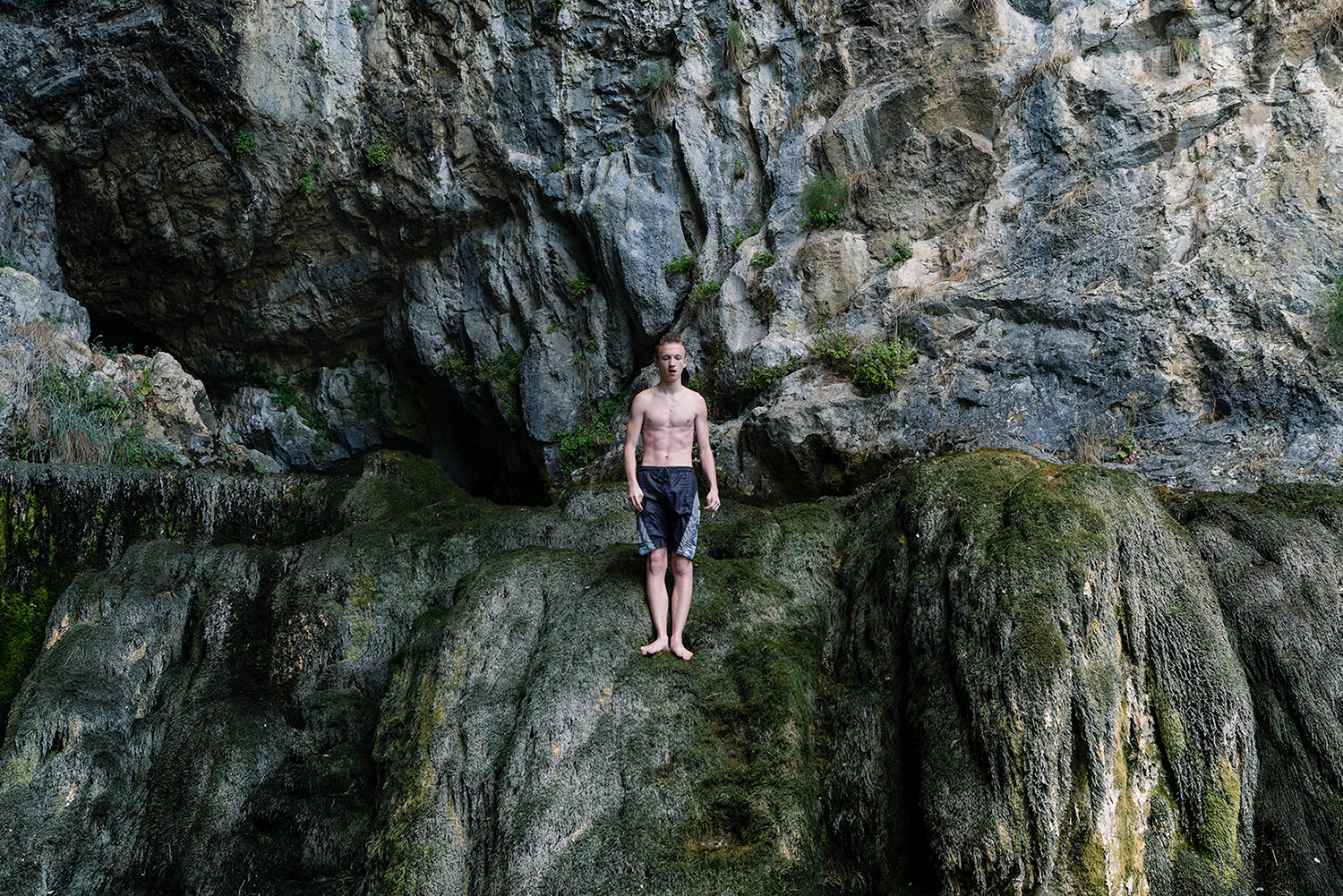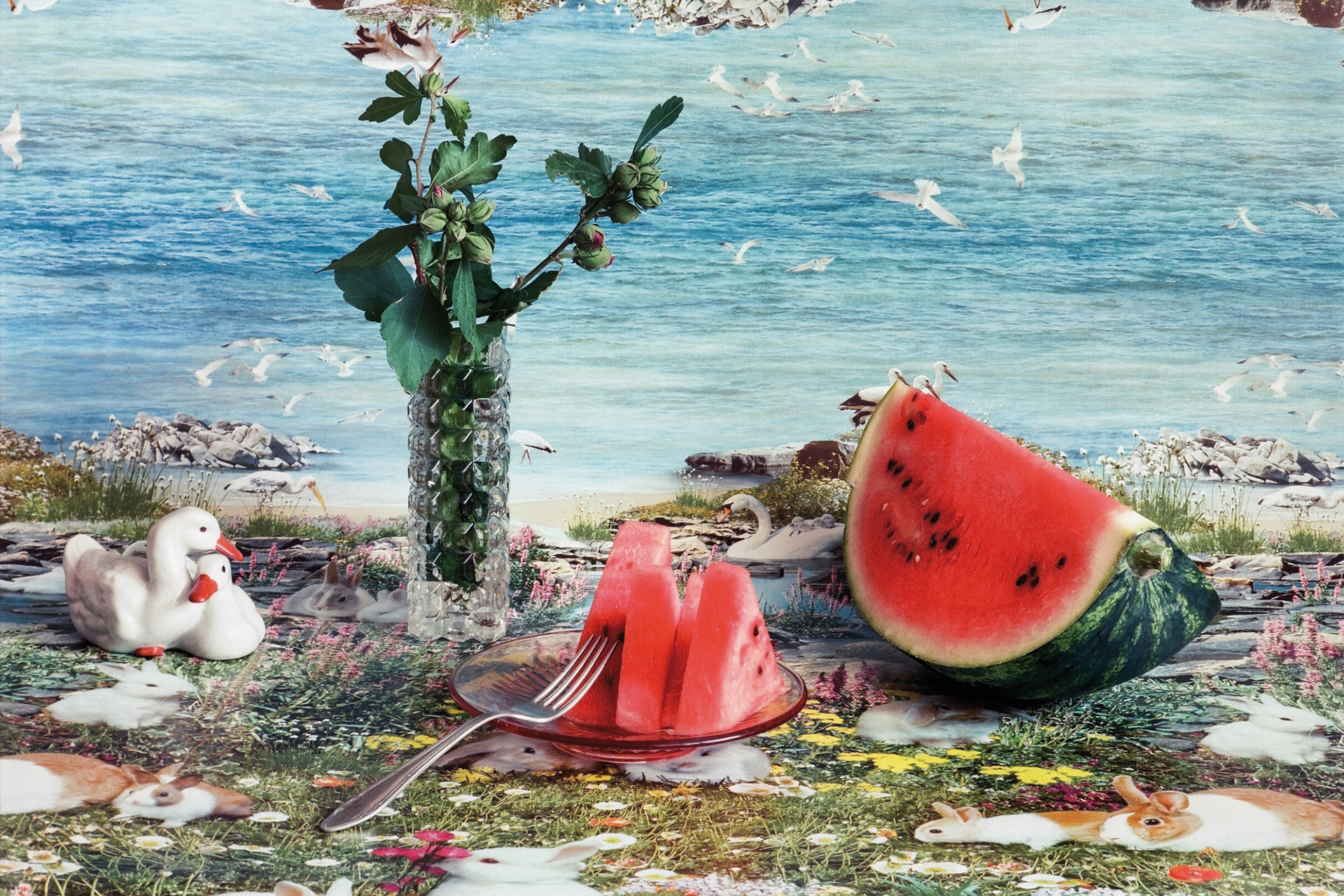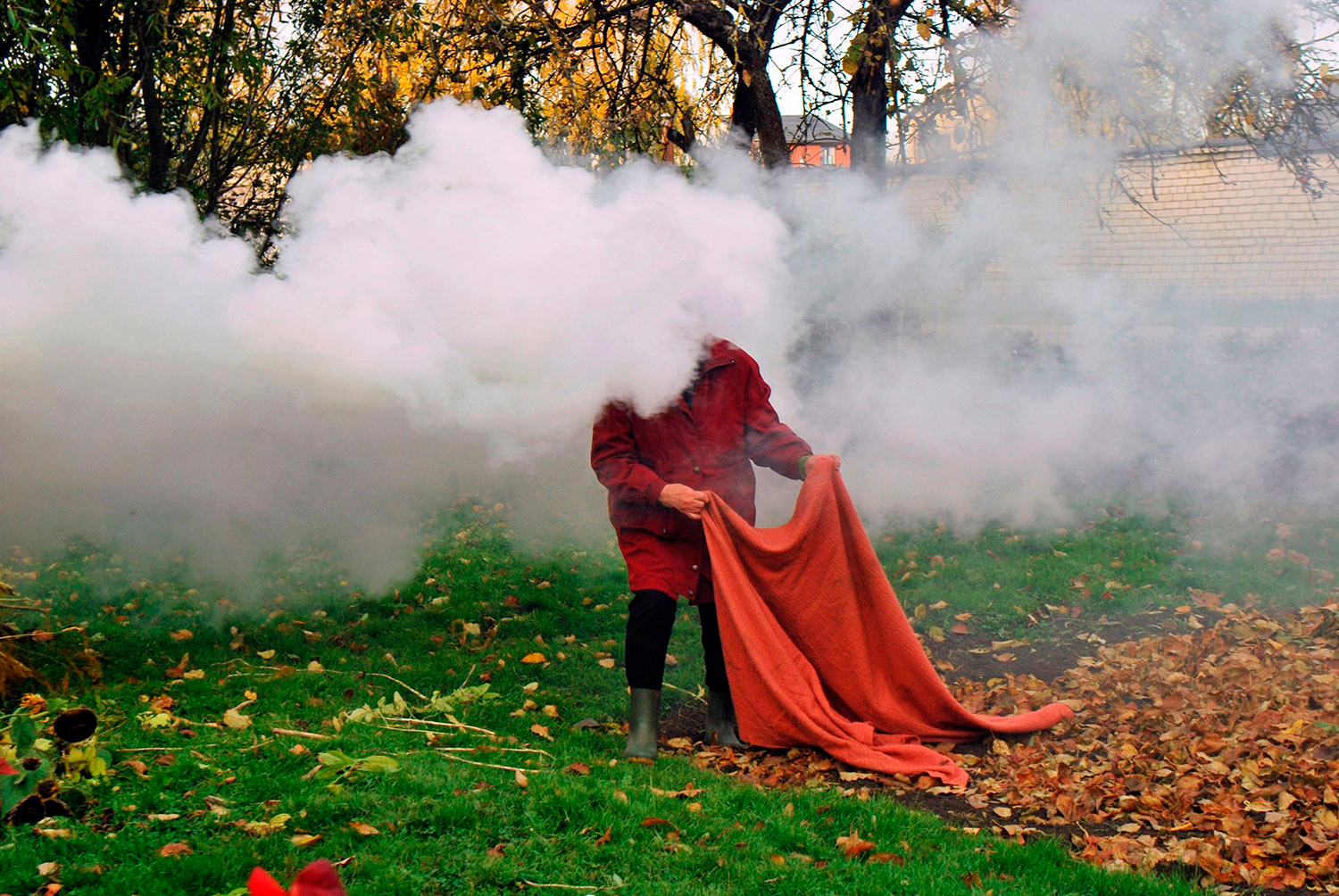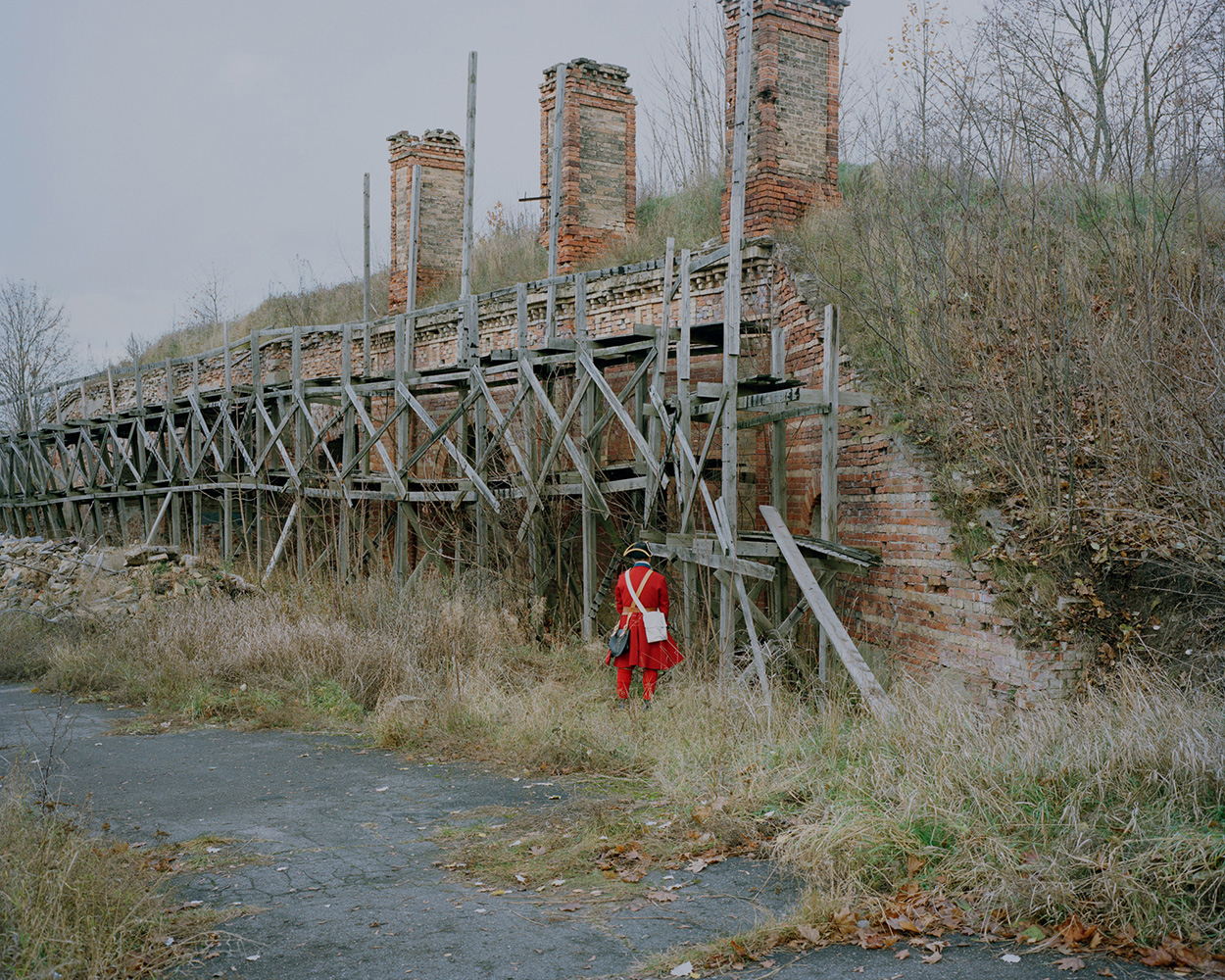
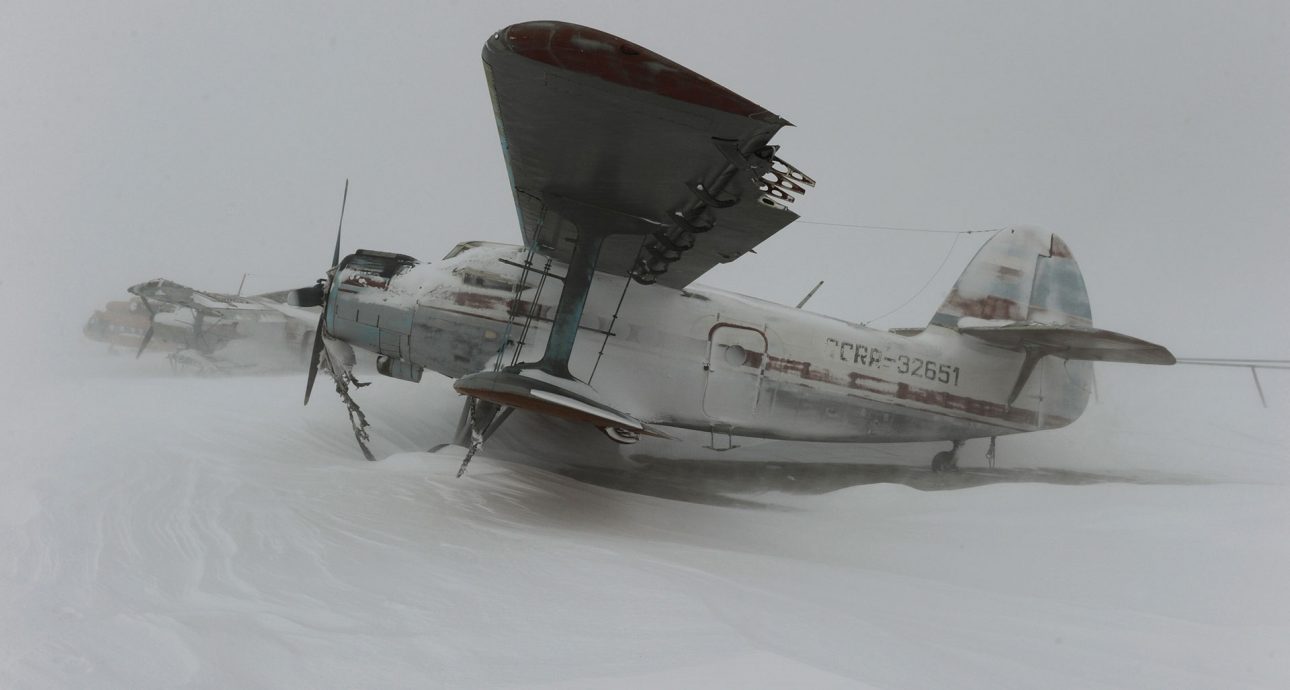
New East Photo Prize: Cape North by Andrey Shapran
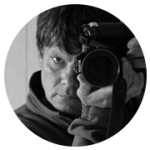
Photographer. Born in Riga, lives in Siberia. Studied Law at the University of Latvia. Member of the Russian Union of Art Photographers. Published his works in National Geographic, Geo, Vokrug Sveta, Russian Reporter, Izvestiya, and many other media outlets.
— I was born in Latvia when it was a part of the Soviet Union. I’ve lived in Siberia for two decades but I work elsewhere too. I’ve worked in western Siberia, the central regions of Russia and abroad, in South-East Asia.
Since 2005 I’ve made a dozen long expeditions to various points on the border of Russia. This includes the Southern Kuril Islands (where I’ve been repeatedly, living and working there around a year), Yakutia, Yamal, northern Kamchatka, the north of Krasnoyarsk Krai, and Chukotka three times. Cape North, the series I submitted for the New East Photo Prize, forms just one of the projects from these expeditions. I spent one and a half months working in a village of whale and walrus hunters, after which I flew to the Arctic coast intending to work on a story about bear patrollers in the national Chukchi village.
The weather was punishing. For one and a half months a nasty blizzard walloped the coast — it felt like you were inside a running jet engine, with perpetual wind, snow, ice and constant movement and very little daylight. This was how the series on blizzards and Cape North was born. I knew from the beginning that this was a story to pursue. The result was reserved, almost black and white colour (sometime only just white), minimal, totally unpredictable and unique. The earth seems to be creating itself anew after being abandoned. The photos capture traces of people and military objects in the North Cape.
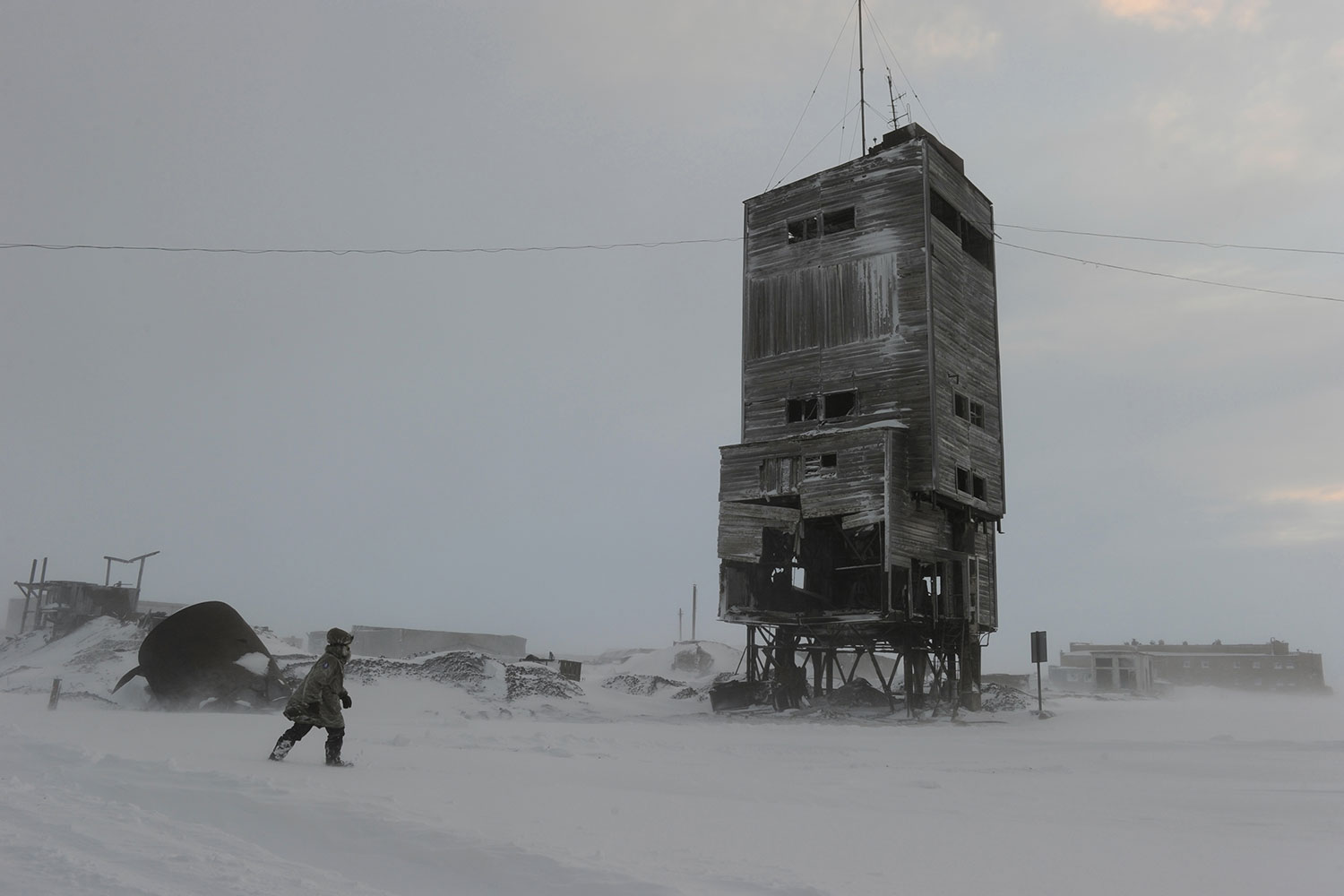
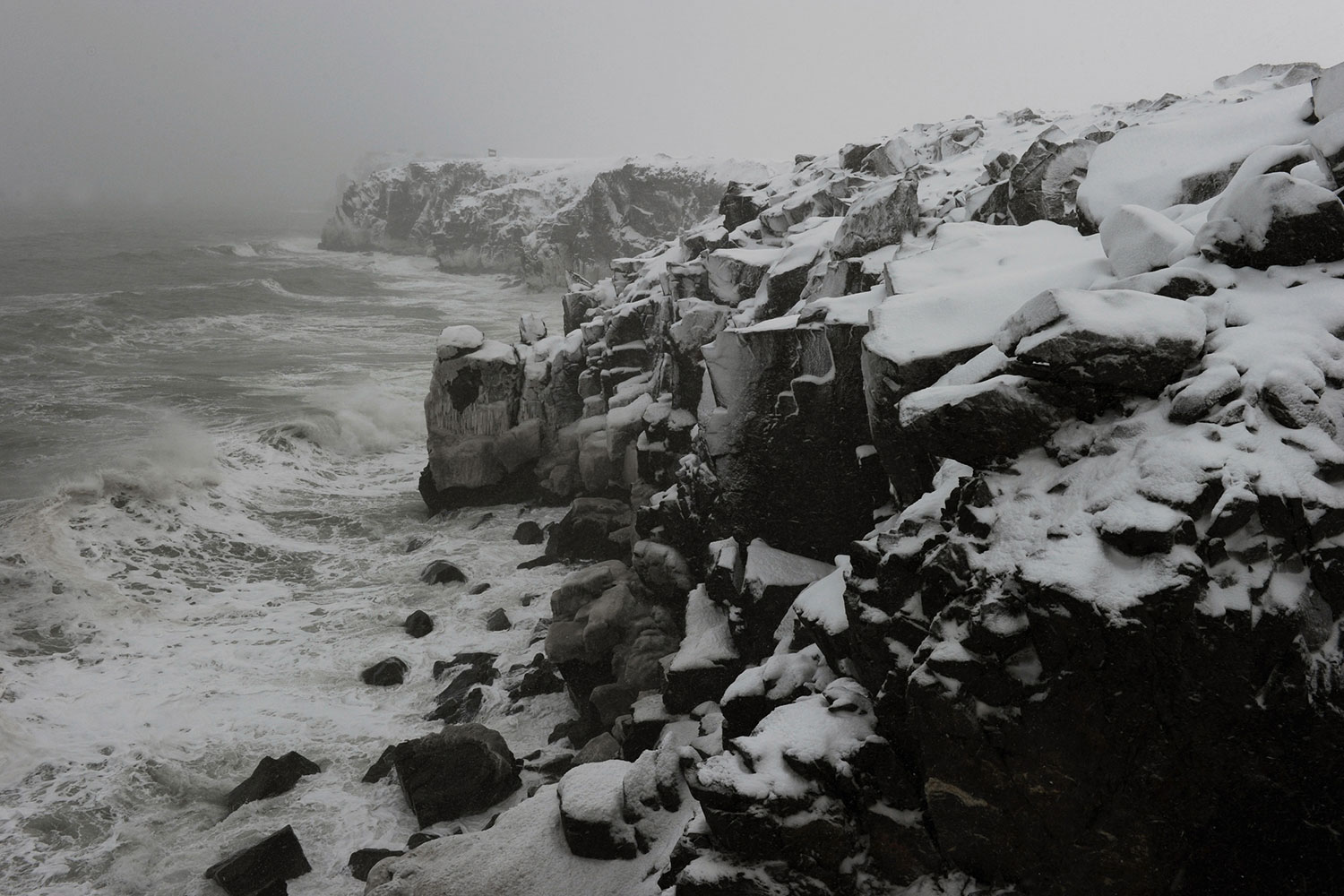
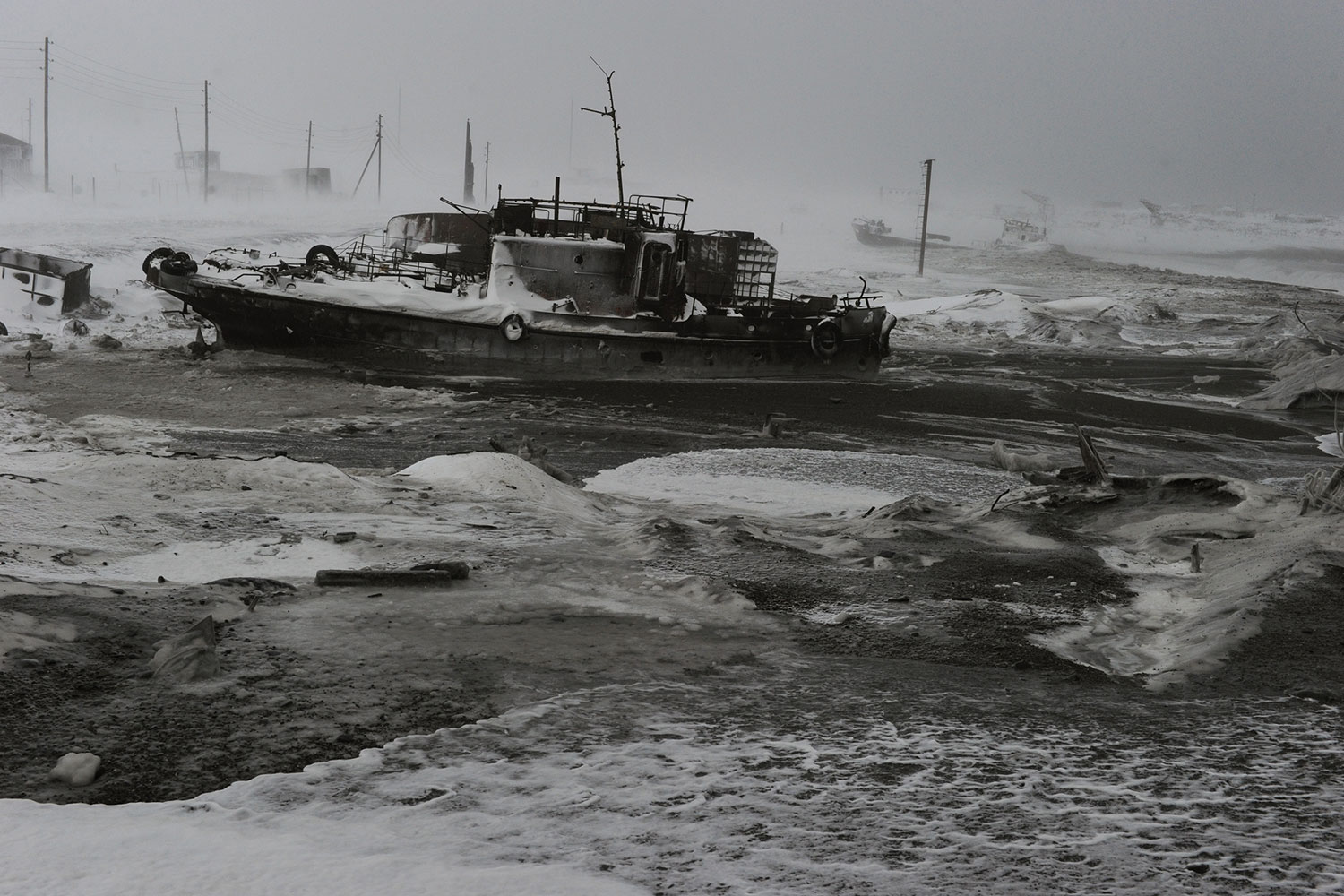
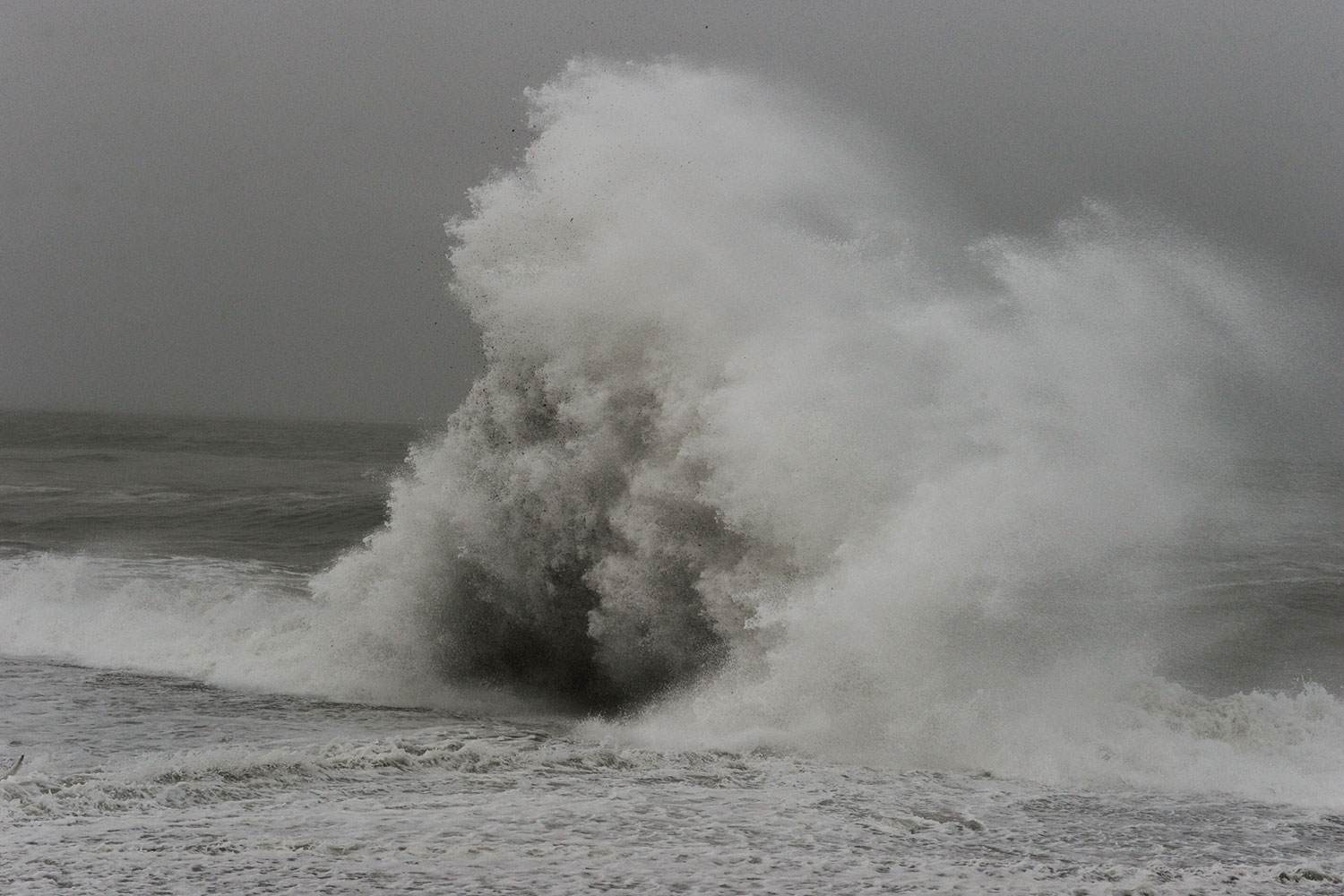
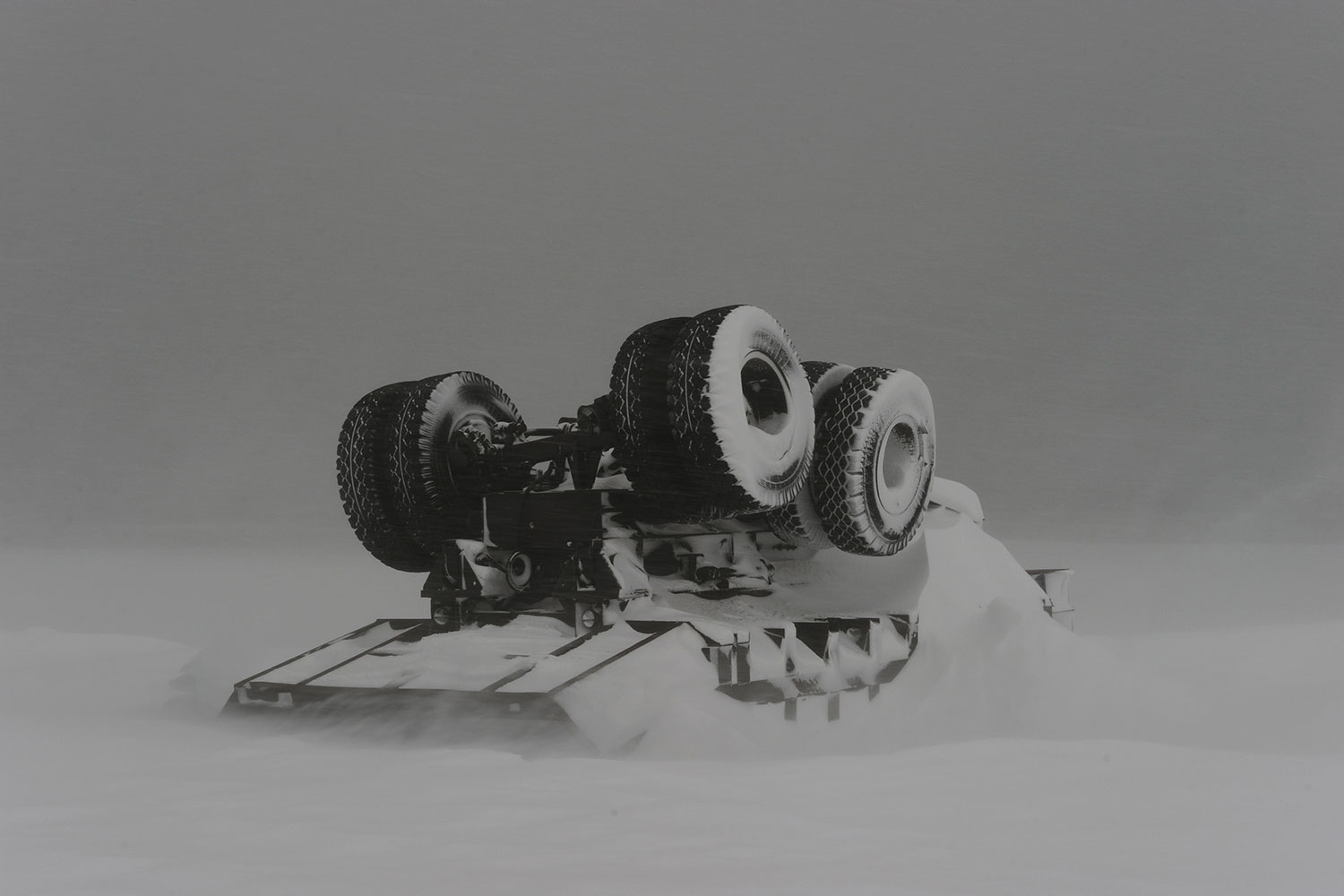
Chukotka is not so difficult to get to in principle but the weather and lack of transport means it might take longer than you expect. I lost three weeks last year for many reasons, one being that the helicopters were not on schedule. I was able to dedicate this wasted time to developing topics which I could only dream of, so I don’t regret the hold-up.
Practically all my travels tend to be long, involving harsh weather conditions between seasons. Though this makes it hard to work, these periods are the best for people watching. I’ve accompanied whale hunters into the sea, gone deep into the tundra or ended up taking photos in no visibility. It’s difficult but rewarding. It’s a completely different experience to what you’ll find anywhere else.
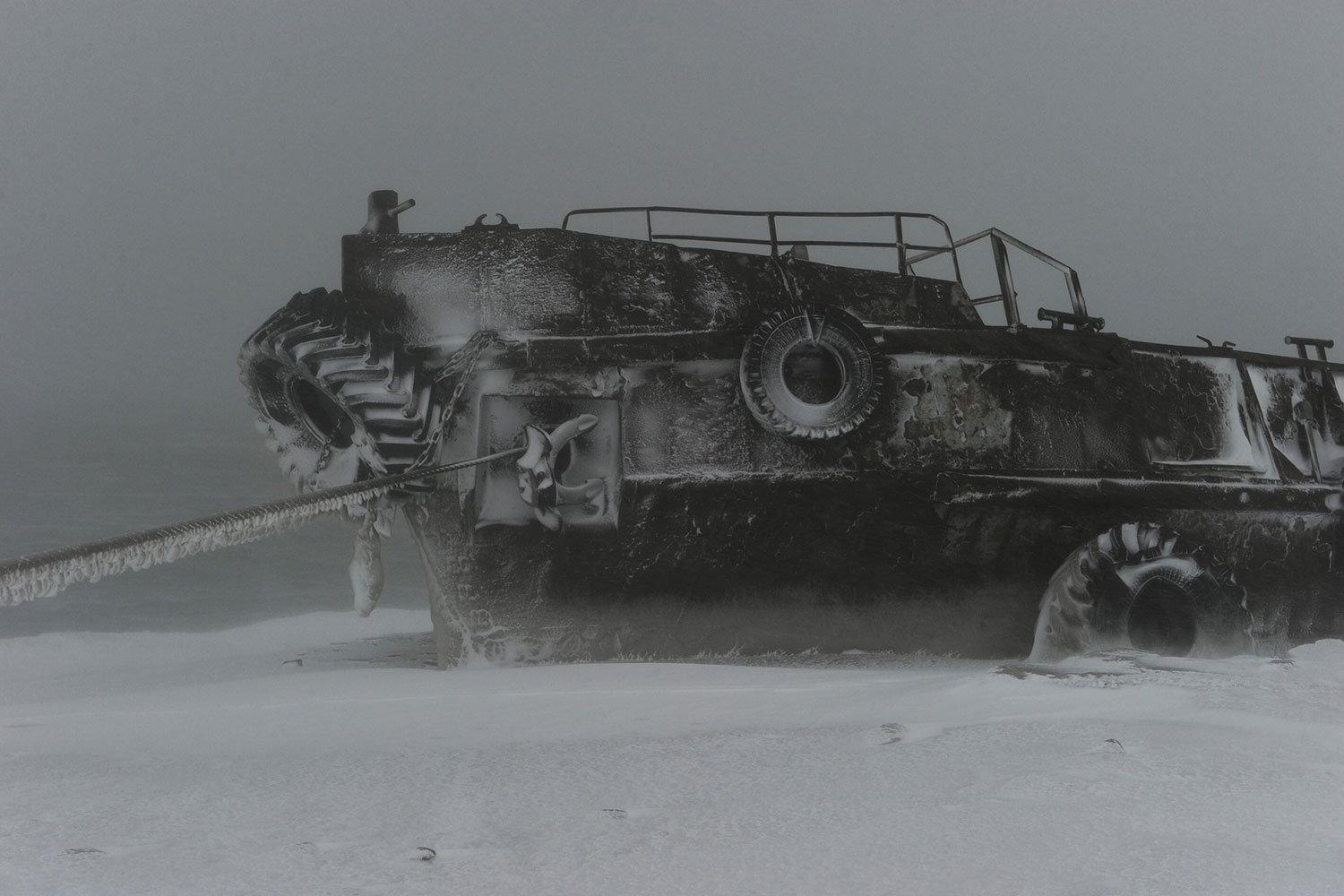
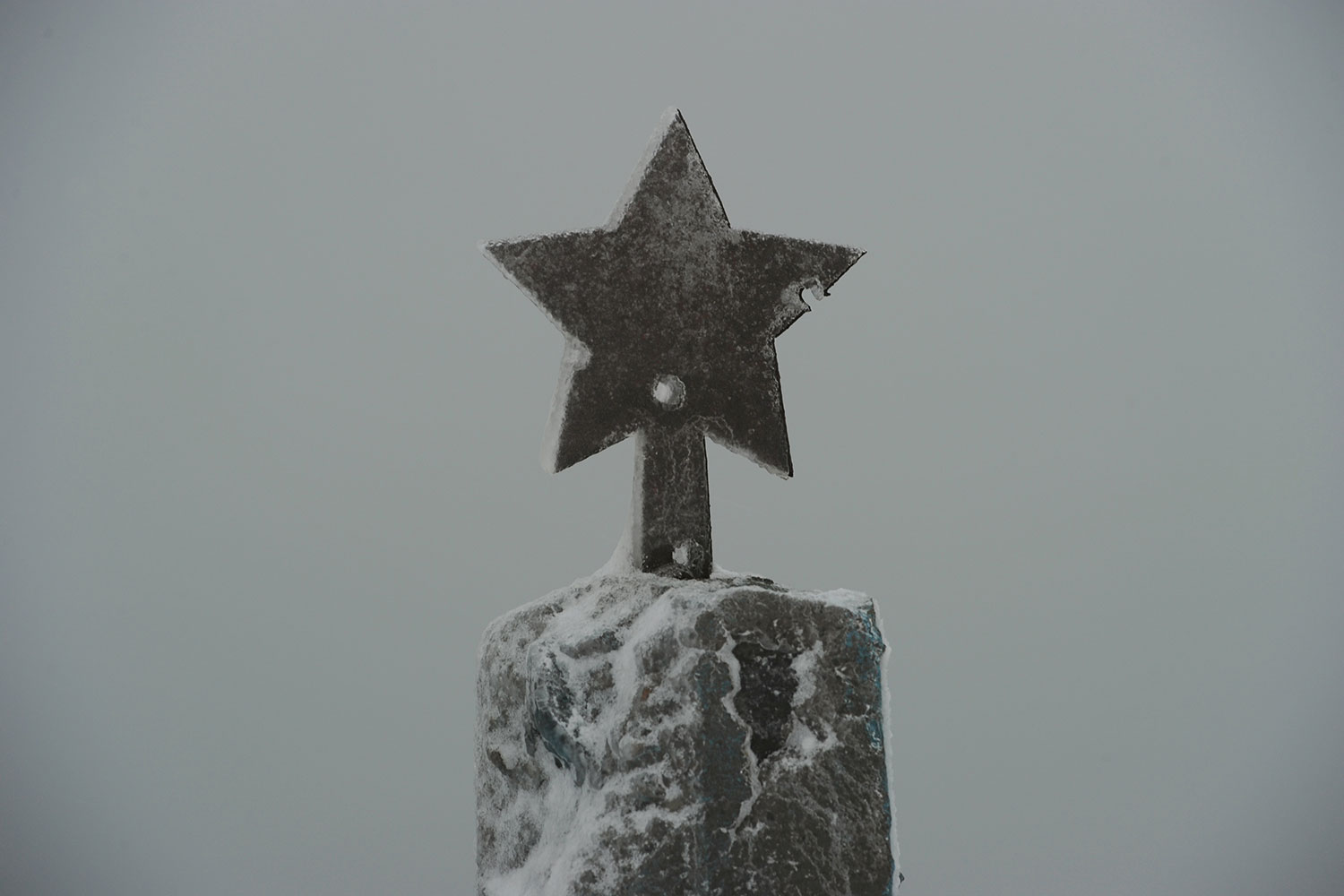
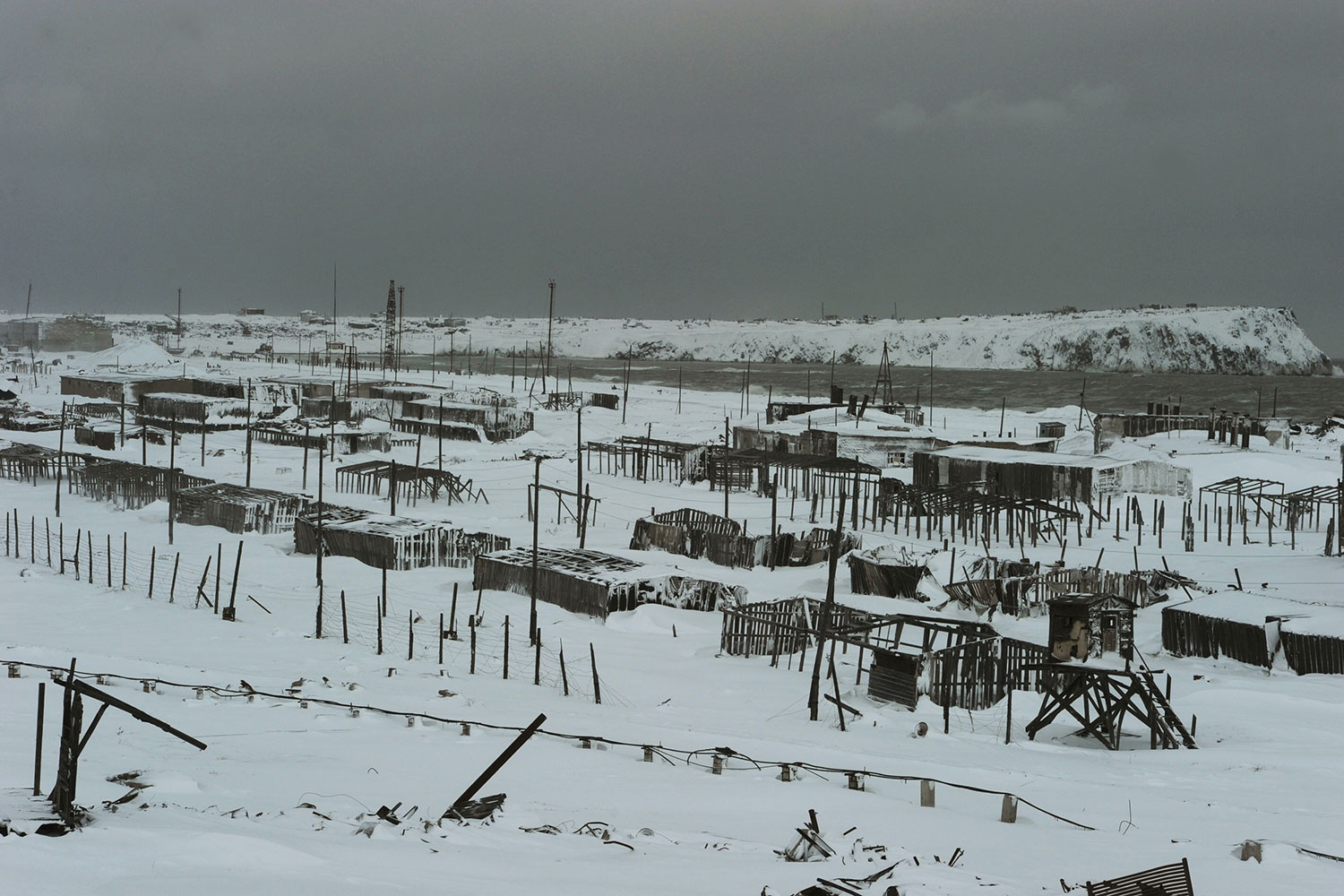
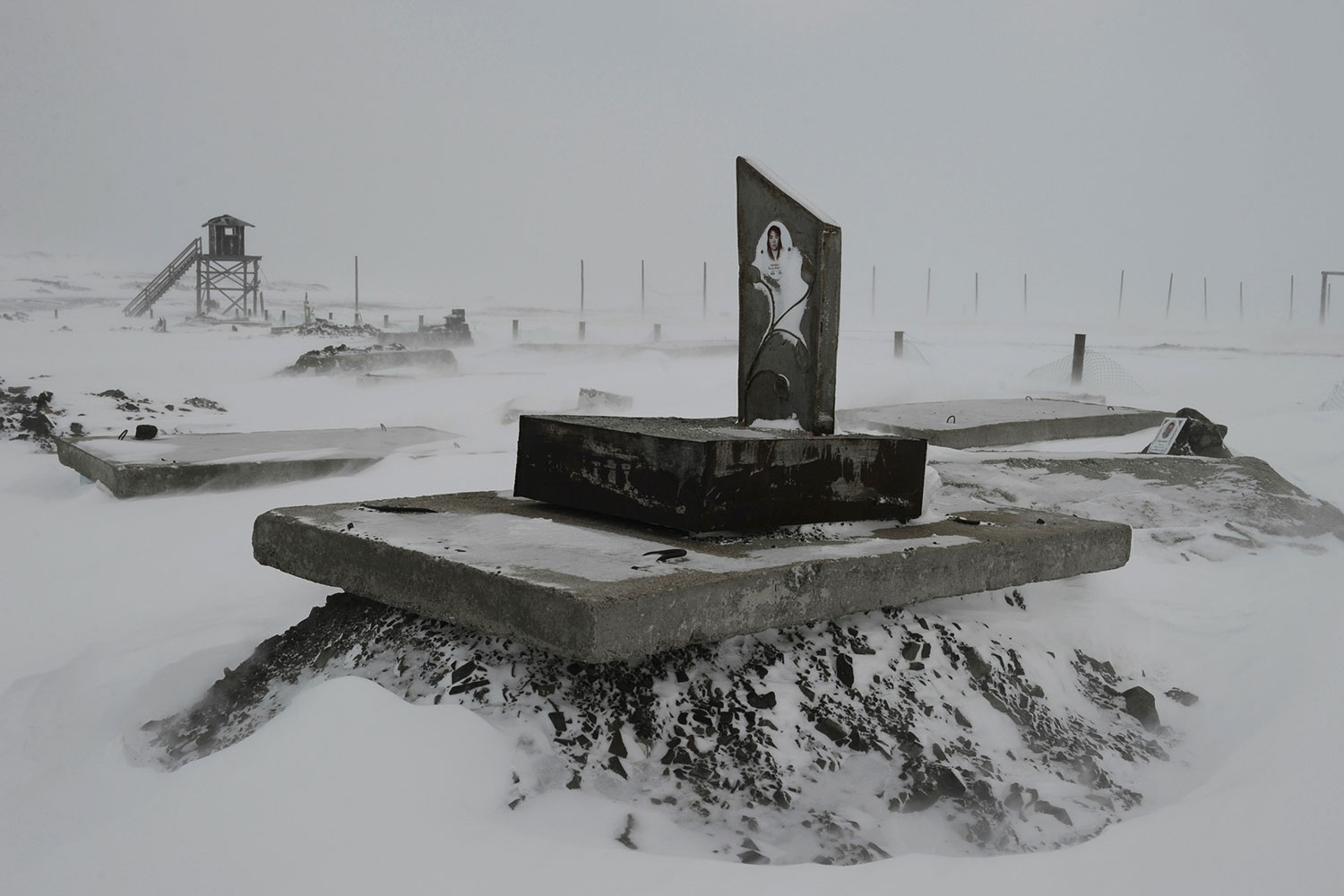
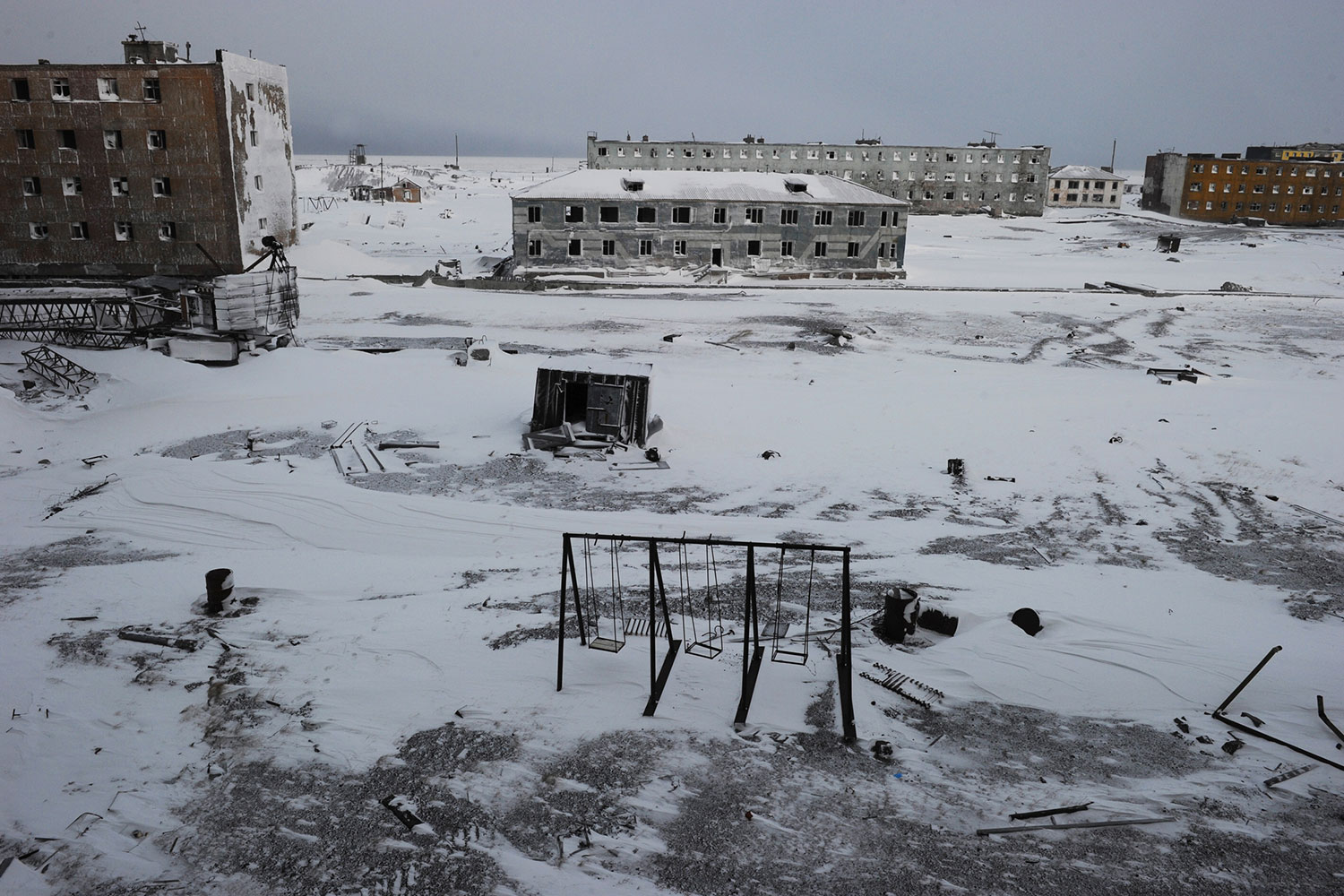
Each expedition is an introduction to a local culture and people. Sometimes it’s almost like an investigation: finding a story or person, returning to that place after some time. For me personally, it’s important to have a mental balance. It’s not easy to live in the most basic and uncomfortable conditions. During the changing seasons, equipment requires frequent attention. Photo equipment faces its hardest test in these conditions, subjected to fog, rain, snow, sea salt. Without a spare camera — sometimes even two — there’s no point going to the Far North. Your first time going out on a boat with whale hunters might very well be your last if your boat gets flipped over. Preparing for such a situation is impossible. Everything in the sea happens very quickly.
Still, one of the challenges of my work is that I am a freelancer — that is, most of the time, I work on stories and themes without any financial support. One exception is the Nikon company and its office in Russia, who have helped me for the last four years and thanks to whom I was able to produce Cape North.
The Far North is a place where any human contact brings comfort, where nature creates a unique environment and every day brings new challenges. Perhaps based on these principles I like creating stories here of all places. I’m back in Chukotka, only now off the east coast where I’m working on a series on Arctic hunters. It’s now three months since I left the mainland.
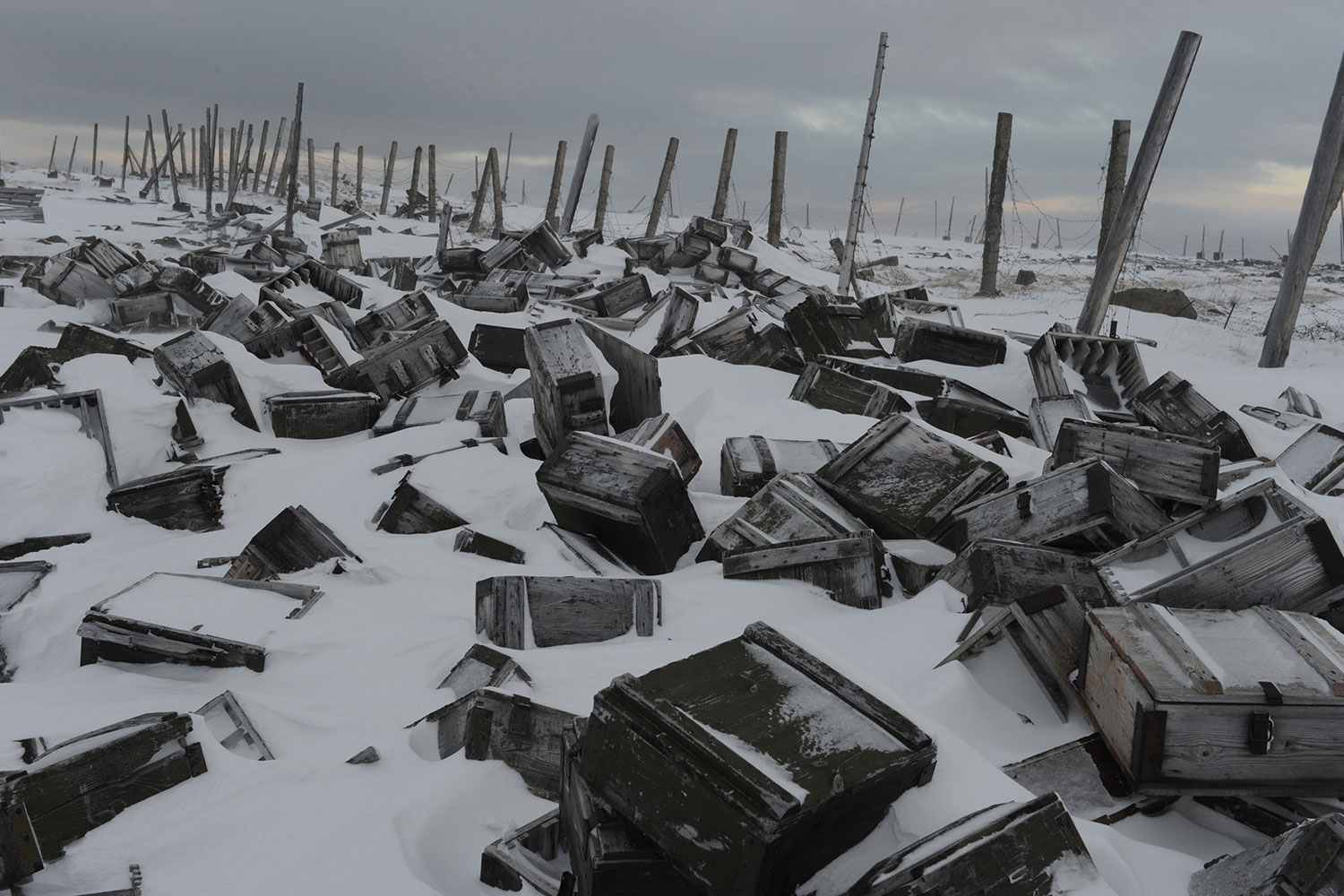
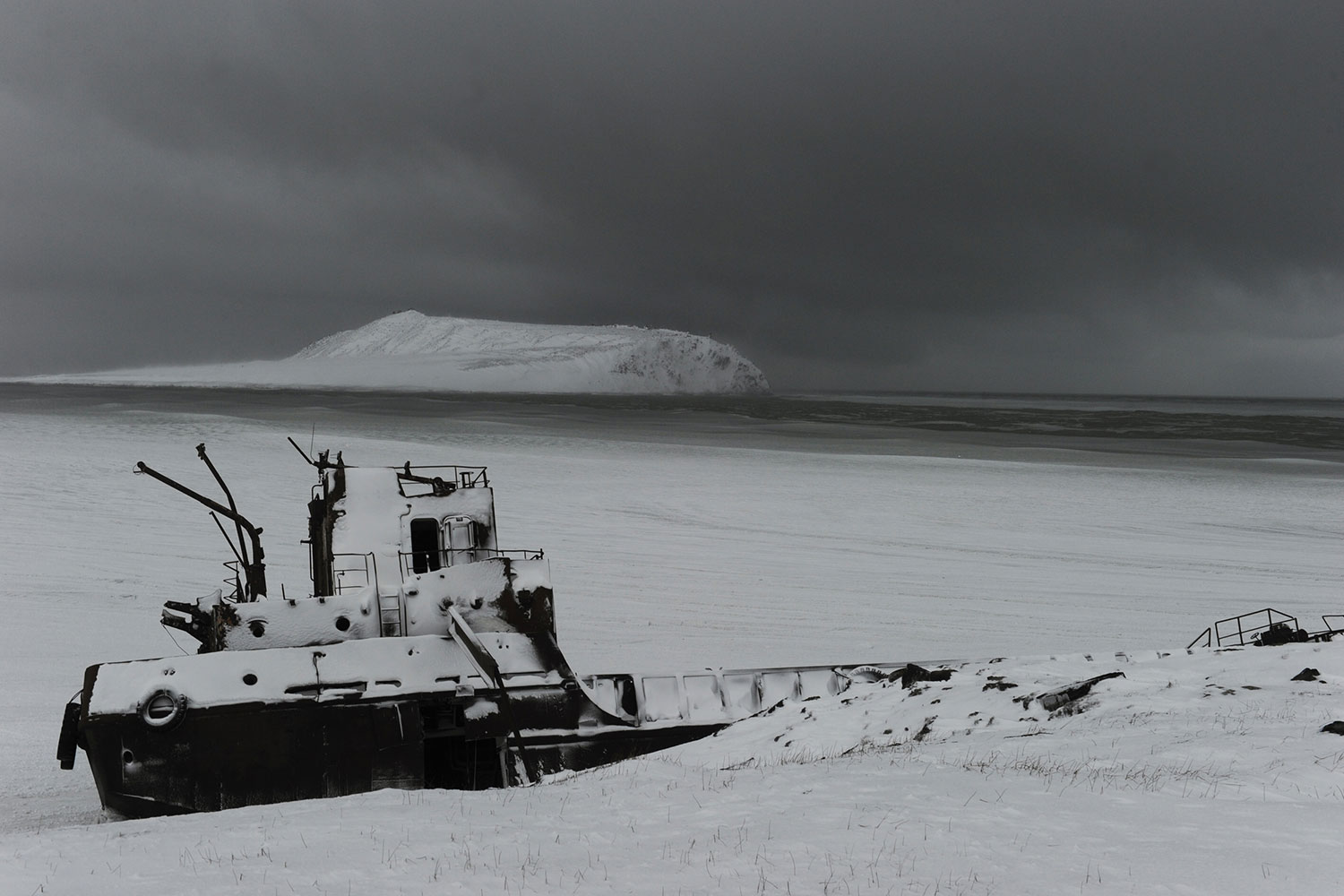
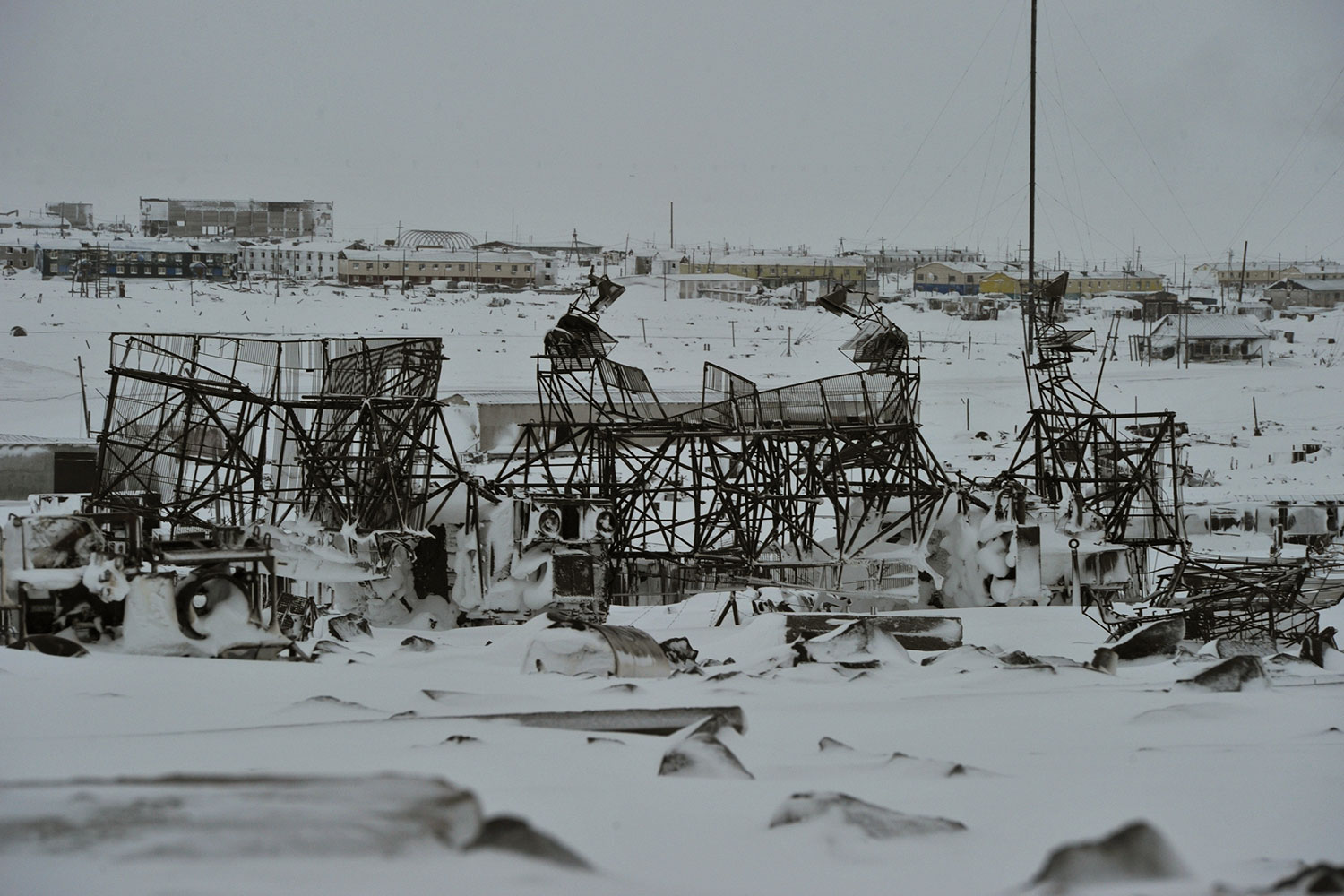
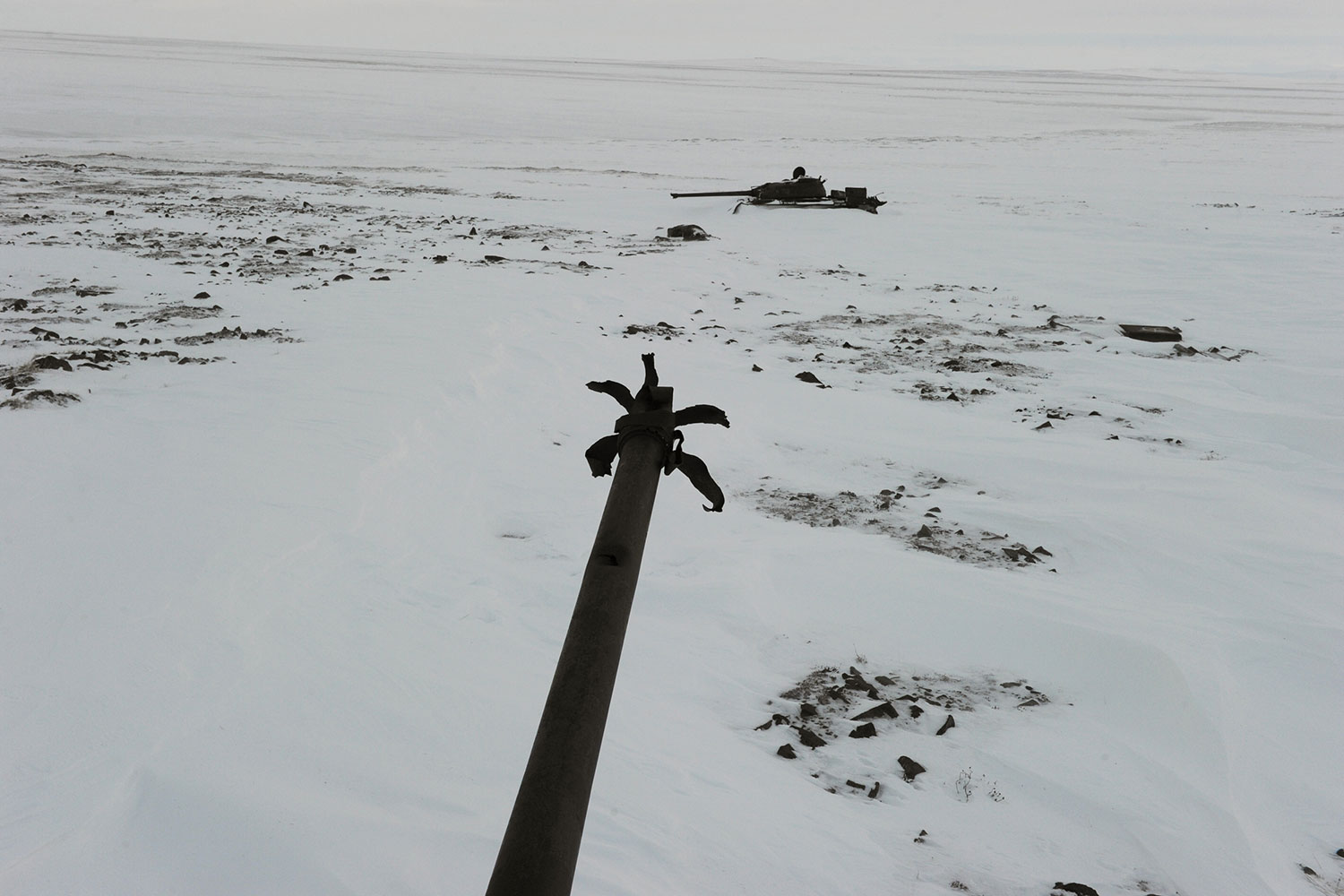
Text and image: Andrey Shapran
Interview: Liza Premiyak
This interview was originally published by The Calvert Journal.
Others project materials

New and best


















